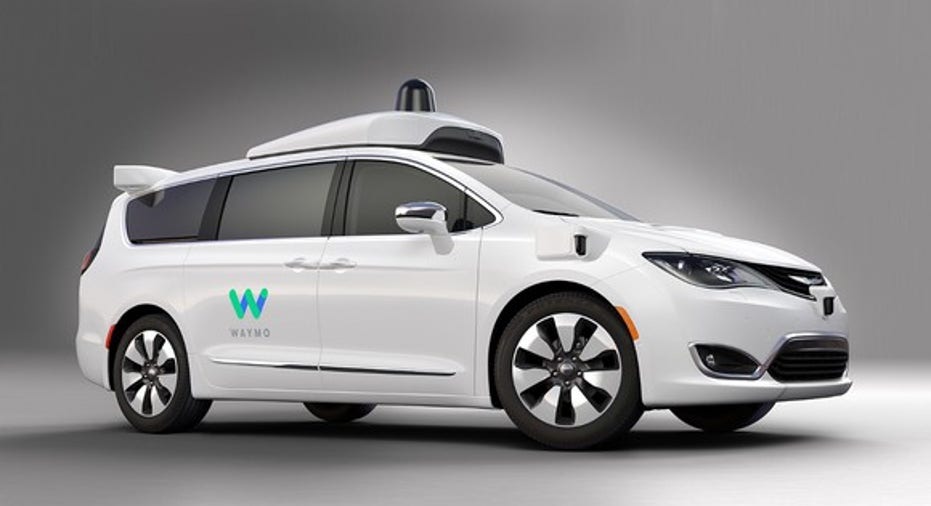Google's Waymo Just Cut Costs on a Key Autonomous Car Technology by 90%

Image source: Waymo.
Alphabet's (NASDAQ: GOOG) (NASDAQ: GOOGL) Google just spun out its self-driving vehicle project, Waymo, into its own subsidairy company last month, and already it's making huge strides in the automotive space. WaymoCEO John Krafcik, announced at the North American International Auto Show in Detroit this week that the company has reduced the cost of its LIDAR sensor by a whopping 90%.
LIDAR -- which uses lasers to map the vicinity, in this case allowing a vehicle to see everything around it --is one of the most expensive technologies on a self-driving vehicle, and cutting is cost could pave the way to profitability for Waymo.
What you get for the money
LIDAR is how self-driving vehicles see the world around them. The technology is pretty easy to spot on a car -- it's usually encased in a dome atop the vehicle. Inside that, a laser spits out pulses of light that, when reflected off of objects, give the car detailed information about the locations and movement of whatever is around it.
Waymo's new LIDAR system works the same way as earlier versions of the technology, but it's massively cheaper. Given that those older systems cost about $75,000, Krafcik's latest announcement implies that Waymo's new LIDAR probably costs about $7,500.
The more expensive LIDAR systems are arguably more accurate, but don't think that it means Waymo will be using a sub-par system for its upcoming self-driving services.
"The detail we capture is so high that not only can we detect pedestrians all around us, but we can tell which direction they're facing,"Krafcik said."This is incredibly important, as it helps us more accurately predict where someone will walk next."
Why cheaper is better
One of the likely reasons why Alphabet spun Waymo out into its own company is because it believes Waymo can stand on its own and produce its own revenue.
Waymo has said that it'll use its software and hardware for several different services, including personal transportation, ride hailing, logistics, and public transportation solutions. We'll likely get our first glimpse of its intentions later this year when it launches a service with Fiat Chrysler (NYSE: FCAU). Waymo will begin testing self-driving Chrysler Pacifica minivans on public roads next month.
But just as with any company, Waymo will need to focus on becoming profitable. Google's been pretty strict lately with those of its subsidiary companies that aren't making money, and has paused several projects (I'm looking at you Google Fiber) that haven't panned out as expected.Waymo will succeed or fail based on its ability to turn its promising tech into tangible -- and lucrative -- products and services.
The self-driving market will be worth an estimated $77 billion by 2035, and a total of nearly 76 million vehicles with some level of autonomy are expected to have been sold by that year.
As with any other technology, reducing the cost so that consumers can afford it is key to Waymo's success. This latest LIDAR cost reduction is great news for the company, and it means Waymo's ride-hailing service -- which it aims to launch later this year -- is one step closer to reality.
10 stocks we like better than Alphabet (A shares) When investing geniuses David and Tom Gardner have a stock tip, it can pay to listen. After all, the newsletter they have run for over a decade, Motley Fool Stock Advisor, has tripled the market.*
David and Tom just revealed what they believe are the 10 best stocks for investors to buy right now... and Alphabet (A shares) wasn't one of them! That's right -- they think these 10 stocks are even better buys.
Click here to learn about these picks!
*Stock Advisor returns as of January 4, 2017
Suzanne Frey, an executive at Alphabet, is a member of The Motley Fool's board of directors. Chris Neiger has no position in any stocks mentioned. The Motley Fool owns shares of and recommends Alphabet (A shares) and Alphabet (C shares). The Motley Fool has a disclosure policy.



















